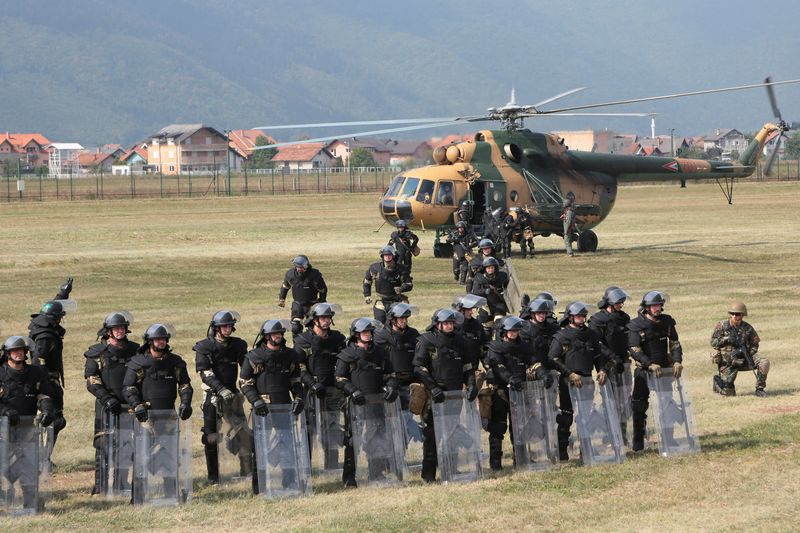SARAJEVO (Reuters) - As a group of would-be protesters grows, shouting and blowing their whistles at the EU force's camp in Sarajevo, a military aircraft flies low and helicopters take off, all as part of a EUFOR exercise echoing the current political crisis in Bosnia.
The protesters carry placards and shout "We don't want Bosnia", reminiscent of chants heard in recent demonstrations by Bosnian Serbs against the indictment of their separatist leader Milorad Dodik, when they also waved flags featuring Russian President Vladimir Putin.
During the EUFOR regular annual drill dubbed "Quick Response 2023", the number of troops was temporarily raised from about 1,100 to 1,300 to test the force's ability to rapidly activate and integrate the reserve troops stationed in its 22 member countries.
"This is of particular importance at the moment due to the unpredictability of changing scenarios requiring the ability to adapt our forces ... especially in these recently volatile times," said EUFOR Commander Helmut Habermayer.
Habermayer however cautioned that "military force is always the last resort".
Ethnic tensions still run high in the Balkan country 28 years after the end of its 1992-95 war in which about 100,000 died and millions were displaced from their homes. Dodik, a pro-Russian nationalist, has long sought to separate the Serb-dominated part of Bosnia from the rest of it.
EUFOR replaced NATO troops in Bosnia in 2004 with a mandate to stabilise the ethnically divided country.

Last year, days after Russia invaded Ukraine, the EU decided to almost double the size of its peacekeeping force from 600 troops by sending in reserves to ward off any potential instability.
NATO and senior EU officials have warned that instability from the war in Ukraine could spread to the Western Balkans.